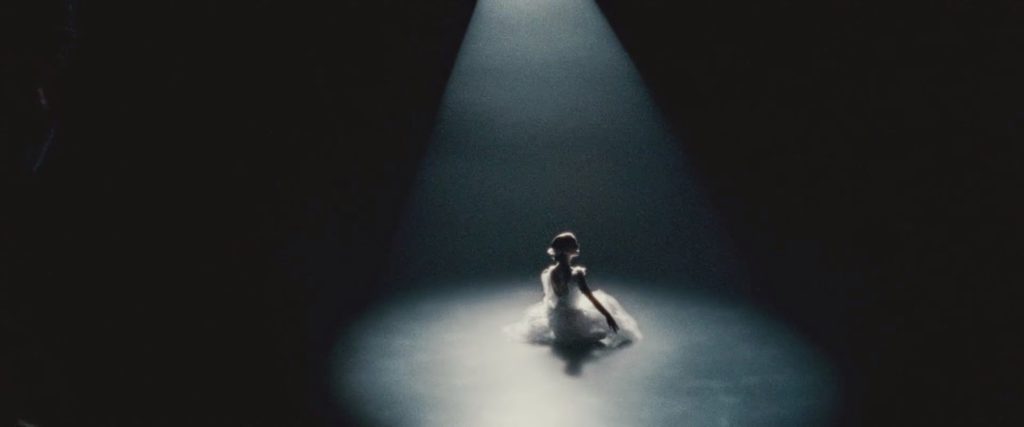
Process and perception.
Those are the two cinematic concepts I kept pondering throughout the entirety of BLACK SWAN. These are two themes that are clearly a focus of director Darren Aronofsky’s work to date.
When a director becomes an above-the-title auteur, it’s time to start talking about his thematic preoccupations. I think Aronofsky is at that level of big-name director at this point. If that were ever in question, BLACK SWAN clinches it.
BLACK SWAN is an assured, masterful, operatic piece of cinema that is both classical and modern at the same time. Aronofsky who works consistently and memorably with cinematographer Matthew Libatique and composer Clint Mansell (whose score for BLACK SWAN is particularly amazing), uses every facet of filmmaking at his disposal in order to construct a movie that is both deeply unsettling and impossible to stop watching.

Process.
In REQUIEM FOR A DREAM, it was the way that Aronofsky detailed the specific business of getting high, the scoring and the shooting-up and the comedowns and all the rest of the painful routines that addicts repeat over and over. In THE WRESTLER, it was the way Aronofsky detailed the gearing-up to the fights, the carnage within the ring, and the mending after the fact. That’s the same way Aronofsky spends time showing how ballerinas lace up for rehearsal, how they painstakingly perfect their motions, how they interact with each other and their choreographers, how they chase perfection with a singularity of purpose. Process is the way that Aronofsky grounds BLACK SWAN in a believable reality, before stripping it away violently yet methodically. Reality is constantly bedeviled by unreality in this film, and that’s where the second theme comes in.

Perception.
That’s what the main thrust of the movie’s action happens. Nominally, this is a story of Natalie Portman’s character, Nina Sayers, a sheltered, almost virginal professional dancer in her twenties who lives at home with her mother (a perfectly-cast Barbara Hershey) as she pursues the lead role in an upcoming production of “Swan Lake.” Nina contends with a host of less-than-trustworthy associates, including the lecherous director (Vincent Cassel) who pushes her towards that potential role, the faded star she would replace (Winona Ryder), and an outgoing, hard-partying understudy (Mila Kunis). All of these supporting actors are wonderfully cagey at playing their parts so close to the edge – do these people mean to do Nina harm, or not? For much of the movie, it can be difficult to tell. That leads to some more profound existential questions.

How does Nina Sayers perceive the world? Probably not entirely the way it truly is, right? Nina has nightmarish visions of ghostly pursuers and shocking bodily transformations. To some degree, those can’t be real, yet clearly there is some degree of (relative) reality to what’s happening onscreen – Nina’s mother does see scratches on Nina’s back, though those may or may not be from black wings beginning to form. Where do Nina’s feverish, paranoid perceptions begin, and when will they end? These are the questions that BLACK SWAN invites an audience to ponder. It plays at the rate of a suspense thriller, but the action takes place inside a troubled mind. In that way there is no movie in recent memory that is more compellingly Kafka-esque. What is Nina seeing? Moreover, why is she seeing what she’s seeing?
I’m certainly not going to answer those questions here, and there’s no guarantee that Darren Aronofsky has answered them himself by movie’s end. Only this much is for sure: BLACK SWAN is eerie, fascinating, perfectly-cast, cunningly-acted, and artfully-composed, and it will prove very difficult to forget.

